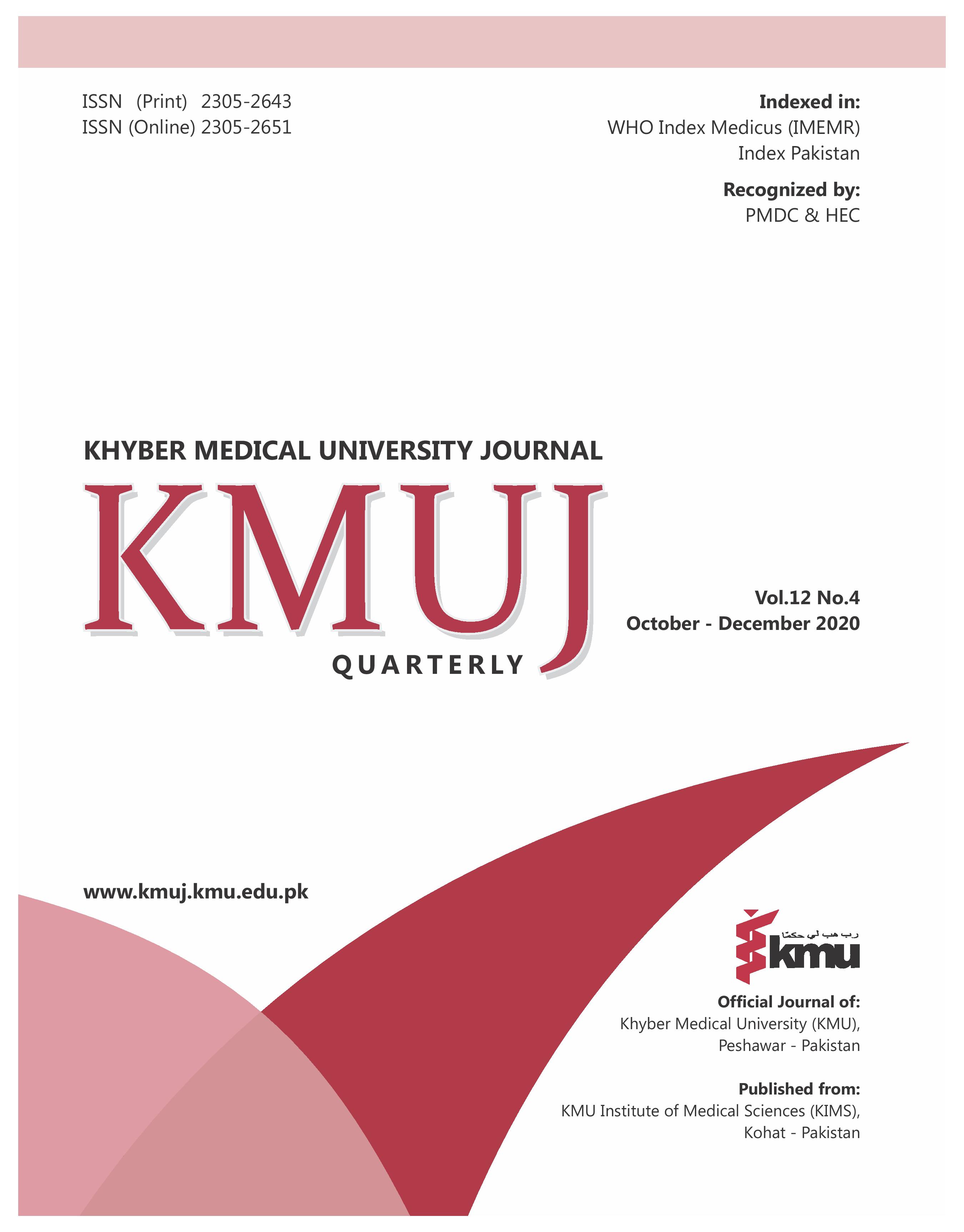STROKE REHABILITATION SERVICES IN PAKISTAN: CURRENT STATUS AND FUTURE DIRECTIONS
Main Article Content
Abstract
Stroke is a leading cause of adult mortality and morbidity worldwide. The incidence of stroke is falling in developed countries, while on the rise in developing countries.1 Pakistan is a low middle-income country with an underdeveloped health care system whose major focus is on the management of communicable diseases.2 Epidemiological data on stroke in Pakistan is limited, based mostly on small samples reported from hospital data.3
Due to the combined efforts of the Pakistan Society of Neurology, Pakistan Stroke Society and the Faculty of Neurology at the College of Physicians and Surgeons of Pakistan (CPSP), the number of neurologists and stroke medicine physicians in the country has increased in the last decade.4 Diagnosis, acute evaluation and management of stroke has also improved. Areas of noted progress include early recognition of signs and symptoms of stroke, timely evacuation to a hospital, early neurology consult, availability of brain imaging (Computed Tomographic scan and Magnetic Resonance Imaging) and access to treatments including tissue plasminogen activator and endovascular procedures.4 At present, this is available only in major cities and hospitals. Despite such improvements in acute stroke management, functional outcomes and community reintegration for stroke patients in Pakistan is generally inadequate, due largely in part to the lack of multi-disciplinary stroke rehabilitation services. We aim to describe the current status of stroke rehabilitation services in Pakistan and discuss the main challenges and barriers towards providing multi-disciplinary stroke rehabilitation. Recommendations to overcome these challenges are also provided.
Article Details
Work published in KMUJ is licensed under a
Creative Commons Attribution 4.0 License
Authors are permitted and encouraged to post their work online (e.g., in institutional repositories or on their website) prior to and during the submission process, as it can lead to productive exchanges, as well as earlier and greater citation of published work.
(e.g., in institutional repositories or on their website) prior to and during the submission process, as it can lead to productive exchanges, as well as earlier and greater citation of published work.
References
Venketasubramanian N. Stroke in Developing Countries. In: Fisher M, Bogousslavsky J. (Eds) Current Review of Cerebrovascular Disease. 2001 Current Medicine Group, London. DOI:10.1007/978-1-4684-0001-4_21
Rathore FA, New PW, Iftikhar A. A report on disability and rehabilitation medicine in Pakistan: past, present, and future directions. Arch Phys Med Rehabil 2011;92(1):161-6. DOI: 10.1016/j.apmr.2010.10.004.
Farooq MU, Majid A, Reeves MJ, Birbeck GL. The epidemiology of stroke in Pakistan: past, present, and future. Int J Stroke. 2009 Oct;4(5):381-9. DOI: 10.1111/j.1747-4949.2009.00327.x.
Anwar A, Saleem S, Aamir A, Diwan M. Organization of stroke care in Pakistan. Int J Stroke 2020 July:15(5):565-6. DOI: 10.1177/1747493019879663.
Winstein CJ, Stein J, Arena R, Bates B, Cherney LR, Cramer SC, et al. Guidelines for adult stroke rehabilitation and recovery: a guideline for healthcare professionals from the American heart association/American stroke association. Stroke 2016;47(6):e98-e169. DOI: 10.1161/STR.0000000000000098.
Rathore FA, Mansoor SN. Disability rights and management in Pakistan: time to face the bitter truth. J Coll Physicians Surg Pak 2019;29(12):1131-2. DOI: 10.29271/jcpsp.2019.12.1131.
Rathore FA, New PW, Iftikhar A. A report on disability and rehabilitation medicine in Pakistan: Past, present, and future directions. Arch Phys Med Rehabil 2011; 92:161-6. DOI: 10.1016/j.apmr.2010.10.004.
Rathore FA, Wasay M. Acute stroke care and long-term rehabilitation in Pakistan: Challenges and solutions. J Pak Med Assoc 2016;66(10):1203-4.
Rathore MF, Rashid P, Butt AW, Malik AA, Gill ZA, Haig AJ. Epidemiology of spinal cord injuries in the 2005 Pakistan earthquake. Spinal Cord 2007;45(10):658-63. DOI: 10.1038/sj.sc.3102023.
Stroke Assessment Scales. The Internet Stroke Center. [Accessed on: June 11, 2020]. Available from URL: http://www.strokecenter.org/professionals/stroke-diagnosis/stroke-assessment-scales/
Bates B, Choi JY, Duncan PW, Glasberg JJ, Graham GD, Katz RC, et al. Veterans affairs/ department of defense clinical practice guideline for the management of adult stroke rehabilitation care: executive summary. Stroke 2005;36(9):2049-56. DOI: 10.1161/01.STR.0000180432.73724.AD.
Rathore FA. The need and roadmap for stroke rehabilitation guidelines in Pakistan. Pak J Neuro Sci 2015;10(2):3-5.
